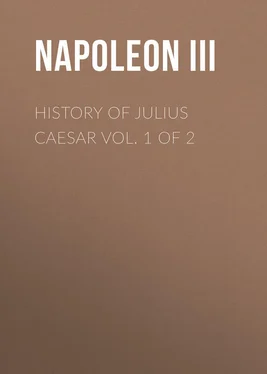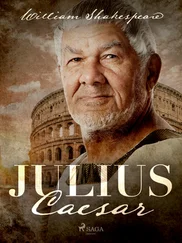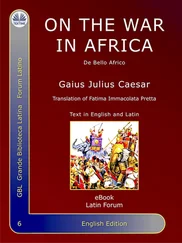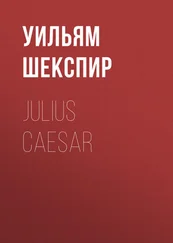Napoleon III - History of Julius Caesar Vol. 1 of 2
Здесь есть возможность читать онлайн «Napoleon III - History of Julius Caesar Vol. 1 of 2» — ознакомительный отрывок электронной книги совершенно бесплатно, а после прочтения отрывка купить полную версию. В некоторых случаях можно слушать аудио, скачать через торрент в формате fb2 и присутствует краткое содержание. Жанр: foreign_antique, foreign_prose, Биографии и Мемуары, на английском языке. Описание произведения, (предисловие) а так же отзывы посетителей доступны на портале библиотеки ЛибКат.
- Название:History of Julius Caesar Vol. 1 of 2
- Автор:
- Жанр:
- Год:неизвестен
- ISBN:нет данных
- Рейтинг книги:5 / 5. Голосов: 1
-
Избранное:Добавить в избранное
- Отзывы:
-
Ваша оценка:
- 100
- 1
- 2
- 3
- 4
- 5
History of Julius Caesar Vol. 1 of 2: краткое содержание, описание и аннотация
Предлагаем к чтению аннотацию, описание, краткое содержание или предисловие (зависит от того, что написал сам автор книги «History of Julius Caesar Vol. 1 of 2»). Если вы не нашли необходимую информацию о книге — напишите в комментариях, мы постараемся отыскать её.
History of Julius Caesar Vol. 1 of 2 — читать онлайн ознакомительный отрывок
Ниже представлен текст книги, разбитый по страницам. Система сохранения места последней прочитанной страницы, позволяет с удобством читать онлайн бесплатно книгу «History of Julius Caesar Vol. 1 of 2», без необходимости каждый раз заново искать на чём Вы остановились. Поставьте закладку, и сможете в любой момент перейти на страницу, на которой закончили чтение.
Интервал:
Закладка:
To sacrifice everything to patriotism is the first duty. By devoting themselves to the gods of Hades, like Curtius and the two Decii, people believed they bought, at the price of their lives, the safety of the others or victory. 238Discipline is enforced even to cruelty: Manlius Torquatus, after the example of Postumius Tubertus, punishes with death the disobedience of his son, though he had gained a victory. The soldiers who have fled are decimated; those who abandon their ranks or the field of battle are devoted, some to execution, others to dishonour; and those who have allowed themselves to be made prisoners by the enemy are disdained as unworthy of the price of freedom. 239
Surrounded by warlike neighbours, Rome must either triumph or cease to exist; hence her superiority in the art of war, for, as Montesquieu says, in transient wars most of the examples are lost; peace brings other ideas, and its faults and even its virtues are forgotten; hence that contempt of treason and that disdain for the advantages it promises: Camillus sends home to their parents the children of the first families of Falerii, delivered up to him by their schoolmaster; the Senate rejects with indignation the offer of the physician of Pyrrhus, who proposes to poison that prince; – hence that religious observance of oaths and that respect for engagements which have been contracted: the Roman prisoners to whom Pyrrhus had given permission to repair to Rome for the festival of Saturn, all return to him faithful to their word; and Regulus leaves the most memorable example of faithfulness to his oath! – hence that skilful and inflexible policy which refuses peace after a defeat, or a treaty with the enemy so long as he is on the soil of their country; which makes use of war to divert people from domestic troubles; 240gains the vanquished by benefits if they submit, and admits them by degrees into the great Roman family; and, if they resist, strikes them without pity and reduces them to slavery; 241– hence that anxious provision for multiplying upon the conquered territories the race of agriculturists and soldiers; – hence, lastly, the improving spectacle of a town which becomes a people, and of a people which embraces the world.
CHAPTER IV.
PROSPERITY OF THE BASIN OF THE MEDITERRANEAN BEFORE THE PUNIC WARS
Commerce of the Mediterranean.
I. ROME had required two hundred and forty-four years to form her constitution under the kings, a hundred and seventy-two to establish and consolidate the consular Republic, seventy-two to complete the conquest of Italy, and now it will cost her nearly a century and a half to obtain the domination of the world – that is, of Northern Africa, Spain, the south of Gaul, Illyria, Epirus, Greece, Macedonia, Asia Minor, Syria, and Egypt. Before undertaking the recital of these conquests, let us halt an instant to consider the condition of the basin of the Mediterranean at this period, of that sea round which were successively unfolded all the great dramas of ancient history. In this examination we shall see, not without a feeling of regret, vast countries where formerly produce, monuments, riches, numerous armies and fleets – all, indeed, revealed an advanced state of civilisation – now deserts or in a state of barbarism.
The Mediterranean had seen grow and prosper in turn on its coasts Sidon, and Tyre, and then Greece.
Sidon, already a flourishing city before the time of Homer, is soon eclipsed by the supremacy of Tyre; then Greece comes to carry on, in competition with her, the commerce of the interior sea; an age of pacific greatness and fruitful rivalries. To the Phœnicians chiefly, the South, the East, Africa, Asia beyond Mount Taurus, the Erythrean Sea ( the Red Sea and the Persian Gulf ), the ocean, and the distant voyages. To the Greeks, all the northern coasts, which they covered with their thousand settlements. Phœnicia devotes herself to adventurous enterprises and lucrative speculations. Greece, artistic before becoming a trader, propagates by her colonies her mind and her ideas.
This fortunate emulation soon disappears before the creation of two new colonies sprung from their bosom. The splendour of Carthage replaces that of Tyre. Alexandria is substituted for Greece. Thus a Western or Spanish Phœnicia shares the commerce of the world with an Eastern and Egyptian Greece, the fruit of the intellectual conquests of Alexander.
Northern Africa.
II. Rich in the spoils of twenty different peoples, Carthage was the proud capital of a vast empire. Its ports, hollowed out by the hand of man, were capable of containing a great number of ships. 242Her citadel, Byrsa, was two miles in circuit. On the land side the town was defended by a triple enclosure twenty-five stadia in length, thirty cubits high, and supported by towers of four storeys, capable of giving shelter to 4,000 horse, 300 elephants, and 20,000 foot soldiers; 243it enclosed an immense population, since, in the last years of its resistance, after a struggle of a century, it still counted 700,000 inhabitants. 244Its monuments were worthy of its greatness: among its remarkable buildings was the temple of the god Aschmoun, assimilated by the Greeks to Æsculapius; 245that of the sun, covered with plates of gold valued at a thousand talents; 246and the mantle or peplum , destined for the image of their great goddess, which cost a hundred and twenty. 247The empire of Carthage extended from the frontiers of Cyrenaica (the country of Barca , in the regency of Tripoli) into Spain; she was the metropolis of all the north of Africa, and, in Libya alone, possessed three hundred towns. 248Nearly all the isles of the Mediterranean, to the west and south of Italy, had received her factories. Carthage had imposed her sovereignty upon all the ancient Phœnician establishments in this part of the world, and had levied upon them an annual contingent of soldiers and tribute. In the interior of Africa, she sent caravans to seek elephants, ivory, gold, and black slaves, which she afterwards exported 249to the trading places on the Mediterranean. In Sicily, she gathered oil and wine; in the isle of Elba, she mined for iron; from Malta, she drew valuable tissues; from Corsica, wax and honey; from Sardinia, corn, metals, and slaves; from the Baleares, mules and fruits; from Spain, gold, silver, and lead; from Mauritania, the hides of animals; she sent as far as the extremity of Britain, to the Cassiterides ( the Scilly Islands ), ships to purchase tin. 250Within her walls industry flourished greatly, and tissues of great celebrity were fabricated. 251
No market of the ancient world could be compared with that of Carthage, to which men of all nations crowded. Greeks, Gauls, Ligurians, Spaniards, Libyans, came in multitudes to serve under her standard; 252the Numidians lent her a redoubtable cavalry. 253Her fleet was formidable; it amounted at this epoch to five hundred vessels. Carthage possessed a considerable arsenal; 254we may appreciate its importance from the fact, that, after her conquest by Scipio, she delivered to him two hundred thousand suits of armour, and three thousand machines of war. 255So many troops and stores imply immense revenues. Even after the battle of Zama, Polybius could still call her the richest town in the world. Yet she had already paid heavy contributions to the Romans. 256An excellent system of agriculture contributed no less than her commerce to her prosperity. A great number of agricultural colonies 257had been established, which, in the time of Agathocles, amounted to more than two hundred. They were ruined by the war (440 of Rome). 258Byzacena ( the southern part of the regency of Tunis ) was the granary of Carthage. 259
This province, surnamed Emporia , as being the trading country par excellence , vaunted by the geographer Scylax 260as the most magnificent and fertile part of Libya. It had, in the time of Strabo, numerous towns, so many magazines of the merchandise of the interior of Africa. Polybius 261speaks of its horses, oxen, sheep, and goats, as forming innumerable herds, such as he had never seen elsewhere. The small town of Leptis alone paid to the Carthaginians the enormous contribution of a talent a day (5,821 francs [£232 16s.]). 262
Читать дальшеИнтервал:
Закладка:
Похожие книги на «History of Julius Caesar Vol. 1 of 2»
Представляем Вашему вниманию похожие книги на «History of Julius Caesar Vol. 1 of 2» списком для выбора. Мы отобрали схожую по названию и смыслу литературу в надежде предоставить читателям больше вариантов отыскать новые, интересные, ещё непрочитанные произведения.
Обсуждение, отзывы о книге «History of Julius Caesar Vol. 1 of 2» и просто собственные мнения читателей. Оставьте ваши комментарии, напишите, что Вы думаете о произведении, его смысле или главных героях. Укажите что конкретно понравилось, а что нет, и почему Вы так считаете.












